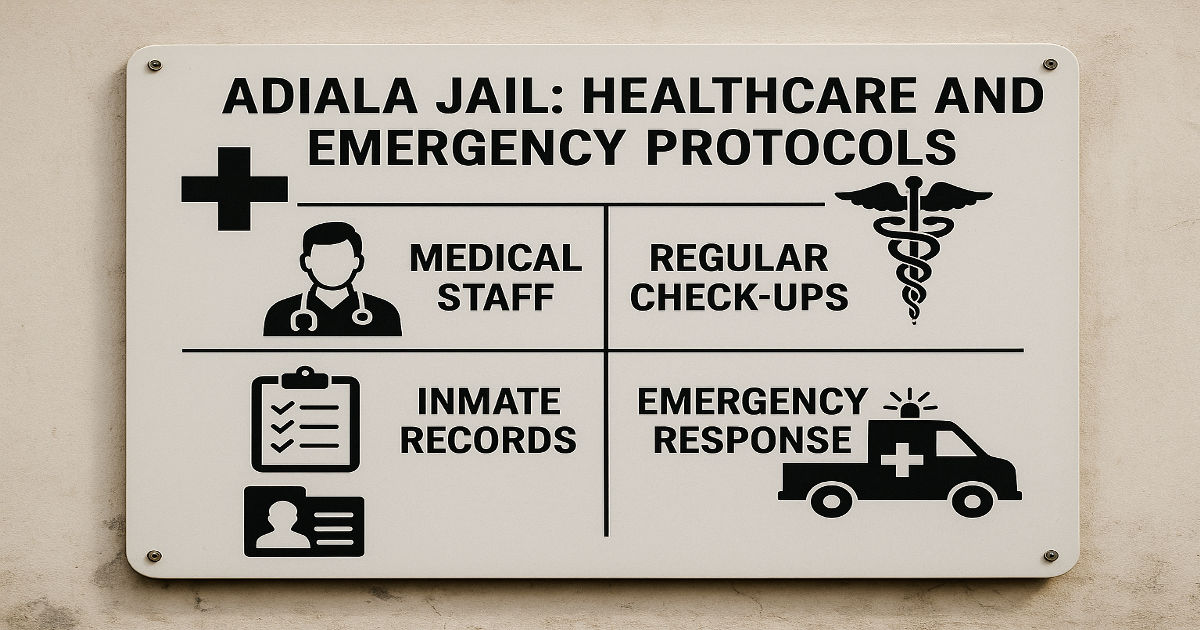
In today’s evolving healthcare landscape, diagnostic imaging professionals like ultrasound technicians are in increasingly high demand. If you’re considering entering the field, one of the first questions that comes to mind is: How long does it take to become an ultrasound tech? The answer depends on your educational background, career goals, and the path you choose — but typically, it ranges from 12 months to 4 years.
This comprehensive guide will walk you through the various training options, certifications, specializations, and timelines involved in becoming a licensed, employable ultrasound technician in the United States.
📌 What Is an Ultrasound Tech?
An ultrasound tech, officially known as a diagnostic medical sonographer, is a healthcare professional trained to operate ultrasound imaging machines. These machines use high-frequency sound waves to produce real-time images of internal organs, tissues, blood vessels, and fetuses during pregnancy.
Ultrasound techs play a critical role in diagnosing medical conditions, guiding surgical procedures, and monitoring fetal development. Their work is both highly technical and deeply patient-centered.
🎓 Educational Pathways: How Long Does It Really Take?
The path to becoming an ultrasound tech isn’t one-size-fits-all. You can take one of three common educational routes depending on your career objectives:
1. Certificate Program – 12 to 18 Months
A certificate or diploma program is the fastest way to enter the field. These are typically available to those who already have prior healthcare experience — such as registered nurses, radiologic technologists, or those with a degree in a science-related field.
- Duration: 1 to 1.5 years
- Ideal for: Career changers or individuals with prior allied health education
- Includes: Classroom instruction + clinical rotations
- Limitation: May not offer as many advancement opportunities as degree holders
Certificate programs focus on core competencies and prepare students to take the ARDMS exam quickly.
2. Associate Degree in Diagnostic Medical Sonography – 2 Years
This is the most popular and widely accepted pathway for new entrants into the field.
- Duration: 2 years (full-time)
- Includes: Anatomy, physiology, patient care, medical ethics, and clinical externships
- Outcome: Eligible for certification and immediate job placement
- Career prospects: Solid job opportunities across hospitals, outpatient clinics, and diagnostic labs
Many community colleges and technical institutes offer accredited associate degree programs, which are often more affordable and accessible.
3. Bachelor’s Degree – 4 Years
Some students opt for a four-year Bachelor of Science in Diagnostic Medical Sonography or a health sciences degree with a concentration in ultrasound.
- Duration: 4 years
- Includes: Advanced coursework in physics, biology, and specialized imaging
- Ideal for: Students aiming for leadership, research, or teaching roles in sonography
- Bonus: Graduates have stronger earning potential and competitive edge in job markets
🧪 Clinical Experience Requirements
Regardless of the path you choose, hands-on clinical training is required. Clinical rotations typically occur in hospitals, imaging centers, or outpatient facilities and are critical for building confidence and competency.
- Average time spent in clinical training: 800–1,200 hours
- Skills developed: Patient interaction, machine handling, safety protocols, anatomical recognition
🧾 Certification: A Critical Step After Graduation
After completing your education, you’ll need to get certified to become competitive in the job market. Certification proves your knowledge and competency and is often required by employers.
Common Certification Bodies:
- ARDMS (American Registry for Diagnostic Medical Sonography)
- CCI (Cardiovascular Credentialing International)
- ARRT (American Registry of Radiologic Technologists) – Sonography certification
To qualify for ARDMS exams, candidates must meet prerequisites and submit clinical experience documentation. Most graduates take the SPI (Sonography Principles & Instrumentation) exam and then pursue specialty exams like:
- OB/GYN
- Abdomen
- Vascular Technology
- Echocardiography
Certification preparation can take 1–3 months after graduation, depending on study habits and exam schedules.
⏱ Summary Timeline: How Long Does It Take?
| Pathway | Education Time | Certification Time | Total Time |
|---|---|---|---|
| Certificate Program | 12–18 months | 1–2 months | 13–20 months |
| Associate Degree | 2 years | 1–2 months | ~2.5 years |
| Bachelor’s Degree | 4 years | 1–2 months | ~4.5 years |
So when someone asks, “How long does it take to become an ultrasound tech?”, the answer ranges from 1 to 4.5 years, depending on how fast and how far you want to go.
🧠 Specializations That May Extend Your Timeline
Some ultrasound techs pursue advanced specializations, which require additional training or post-certification coursework. Popular specializations include:
- Obstetric and Gynecologic Sonography
- Abdominal Sonography
- Cardiac Sonography (Echocardiography)
- Vascular Sonography
- Musculoskeletal Sonography
Each specialty might add 3–6 months of training time, but they also open doors to higher-paying jobs and greater career mobility.
💵 Career Outlook and Earnings
Ultrasound technicians enjoy strong job prospects due to the non-invasive and diagnostic nature of the work. The U.S. Bureau of Labor Statistics reports:
- Job Growth: 10% between 2022 and 2032
- Median Salary: Around $81,350/year (as of 2023)
Want a detailed breakdown? Read this guide on how much ultrasound techs make to compare salaries by state, specialization, and experience.
🌐 Related Tech Careers in Healthcare
If you’re drawn to the intersection of technology and healthcare, you might also consider:
- Radiologic Technologist
- MRI Technician
- Pharmacy Technician
→ Learn more about how much pharmacy techs make
You can also explore broader innovation trends in the Technology category of OnRecordPK to see how careers are evolving across industries.
Conclusion
Becoming an ultrasound tech is a smart investment in a future-proof healthcare career. Depending on your educational background and career goals, you can enter the field in as little as 12 to 18 months through a certificate program or take a more advanced route via a two-year associate or four-year bachelor’s degree. Each path offers unique benefits, but all require clinical training and national certification to practice professionally.
Specializations in areas like cardiac or vascular sonography may extend your timeline slightly, but they can also significantly increase your career opportunities and earning potential. As technology continues to evolve in the medical imaging space, skilled ultrasound technicians will remain highly valued across hospitals, clinics, and private practices.
The timeline to become an ultrasound tech is flexible enough to fit different lifestyles and aspirations. Whether you’re entering the workforce quickly or pursuing long-term specialization, this career offers stability, growth, and purpose. With strong job outlooks, competitive salaries, and the ability to make a real difference in patient care, it’s no wonder so many are choosing this path.
Plan your journey wisely — and take the first step toward a fulfilling healthcare technology career today.
FAQs
1. How long does it take to become an ultrasound tech?
The time it takes to become an ultrasound tech depends on your chosen educational path. A certificate program can take as little as 12–18 months, while an associate degree typically requires two years. Those pursuing a bachelor’s degree may spend up to four years in school. Additional time may be needed for certification and clinical training.
2. Do I need a degree to become an ultrasound tech?
You don’t necessarily need a traditional four-year degree to become an ultrasound tech. Many professionals enter the field with a two-year associate degree or even a one-year certificate if they already have healthcare experience. However, a bachelor’s degree may offer more advancement opportunities in the long run.
3. Can I become an ultrasound tech online?
Some institutions offer hybrid or partially online ultrasound tech programs, particularly for the theoretical or general education coursework. However, hands-on clinical training must be completed in person. You’ll need supervised experience using ultrasound machines in a real-world healthcare setting to qualify for certification.
4. What kind of certification do ultrasound techs need?
Most employers prefer or require certification from a recognized body such as the ARDMS (American Registry for Diagnostic Medical Sonography). You’ll usually need to pass the SPI (Sonography Principles & Instrumentation) exam and then a specialty exam like OB/GYN or abdomen. Certification improves job prospects and credibility.
5. Can I work while studying to become an ultrasound tech?
Yes, many students work part-time or even full-time while completing their ultrasound tech training. Associate and certificate programs often offer flexible scheduling, including evening or weekend classes. However, clinical rotations are typically fixed and may require time off or schedule adjustments.
6. What subjects are covered in an ultrasound tech program?
Ultrasound tech programs cover a wide range of topics including anatomy, physiology, medical ethics, ultrasound physics, and patient care. You’ll also receive training on how to operate ultrasound equipment and interpret images. Clinical rotations provide practical experience in hospitals or clinics.
7. Is the job of an ultrasound tech physically demanding?
Yes, it can be physically demanding. Ultrasound techs are on their feet for long periods and must often assist patients with mobility issues. You may also need to position equipment and reach over patients, which requires upper body strength and stamina. Good ergonomics are essential to prevent injury.
8. Are ultrasound techs in high demand?
Absolutely. The demand for diagnostic medical sonographers is growing faster than average. According to labor statistics, job growth is projected at 10% over the next decade. As medical imaging becomes more essential and non-invasive diagnostics rise, ultrasound techs will continue to be highly sought after.
9. How much do ultrasound techs make per year?
The average salary for an ultrasound tech in the United States is around $81,000 per year, though this varies by location, certification, and specialization. Those in cardiac or vascular sonography often earn more. Entry-level salaries may start lower, but growth is steady with experience.
10. Can I specialize after becoming a general ultrasound tech?
Yes, you can pursue specialized training in areas like cardiac sonography, obstetric imaging, or vascular technology after gaining basic certification. Specializing may require additional coursework or clinical hours, but often leads to higher pay and more advanced job roles. Many techs choose to specialize as their careers progress.


















































































































































































